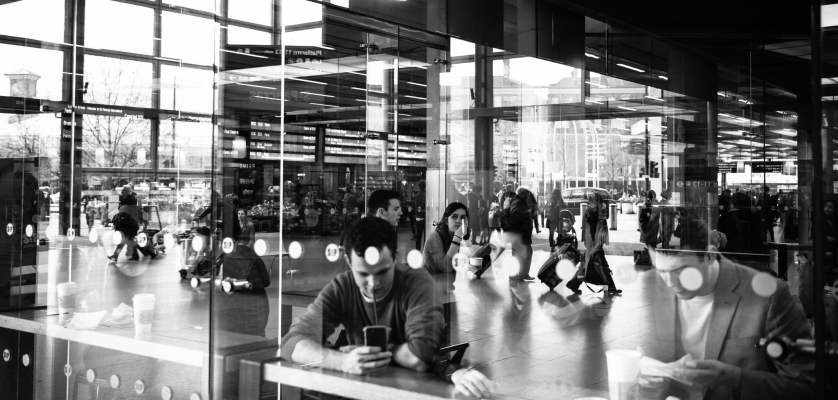Will London Fall? By Sarah Lyall, New York Times

Will London Fall after Brexit? By Sarah Lyall.
London may be the capital of the world. You can argue for New York, but London has a case. Modern London is the metropolis that globalization created. Walk the streets of Holborn, ride an escalator down to the Tube and listen to the languages in the air. Italian mingles with Hindi, or Mandarin, or Spanish, or Portuguese. Walk through the City, the financial district, and listen to the plumbing system of international capitalism. London is banker to the planet.
London is ancient yet new. It is as much city-state as city, with a culture and economy that circulate the world. London manages to be Los Angeles, Washington and New York wrapped into one. Imagine if one American city were home to Hollywood, the White House, Madison Avenue, Wall Street and Broadway. London is sort of that.
Modern London thrives on the idea that one city can be a global melting pot, a global trading house, a global media machine and a place where everyone tolerates everyone else, mostly. The thought is that being connected to the rest of the world is something to celebrate. But what happens to London when that idea unexpectedly falls away?
LONDON — St. Pancras International rail station, a wonder of Victorian architecture resurrected for the 21st century, opened 10 years ago as the embodiment of a particular notion: that Britain is part of something bigger than itself and that belonging to a fellowship of nations is as easy and natural as stepping onto a train.
It was both shocking and thrilling, at first, that you could catch a Eurostar from a platform in London, slide under the English Channel, hurtle through the French countryside and less than three hours later pull into the Gare du Nord in Paris. To ride the Eurostar was to marvel that the capitals — London so prosaic and straightforward, Paris so romantic and mysterious, the two with their long history of rivalry and discord — were part of the same larger enterprise.
Eurostar symbolized an era in which London seemed to be inevitably rushing toward Europe, too. At least that was the idea until now, and the beginning of the process known as Brexit. The trains are still running, but the era that created modern London appears to be over.
“We’ve made a horrible statement to the rest of the world, and it’s very sad,” said Martin Eden, a publisher waiting to catch the Eurostar to Paris the other day, to celebrate his 43rd birthday. “We should be moving together,” he said of Europe, “instead of moving apart.”
I met Mr. Eden as I wandered around St. Pancras at the moment Britain officially filed for divorce from the European Union. It was lunchtime on March 29, Brexit Day, as you might call it, when Britain delivered a letter to Brussels and opened two years of negotiations over the rules of disengagement.
But as Britain tries to bid farewell to its now-estranged partner of 44 years, London faces a different sort of challenge: how a great global city whose residents voted overwhelmingly against Brexit in last summer’s referendum should adjust to an uncertain future governed by principles that feel antithetical to its very being. Brexit has divided Britain from Europe but also divided Britain from itself, with London on one side and much of England on the other (Scotland and Northern Ireland, which also voted to remain, are another story).
To many people in the capital, the vote last year feels like a rejection not just of Europe but also of the values embodied by London, perhaps the world’s most vibrantly and exuberantly cosmopolitan city: values like openness, tolerance, internationalism and the sense that it is better to look outward than to gaze inward. Even as a sense of melancholy seemed to descend on St. Pancras when I walked around the other day, much of the rest of Britain was celebrating.
“A Magnificent Moment,” The Daily Telegraph announced on its front page the next morning; “Dover and Out,” said The Sun, referring to the White Cliffs of Dover. But even as much of the country has spoken darkly of the influx of immigrants, the erosion of British values and the siphoning of resources by Europe, London has remained about as heterogeneous and open-minded a place as you could imagine, especially for a 2,000-ish-year-old metropolis.
Here are Britain’s richest people and many of its poorest, living side by side in relative peace. London is stuffed with British landmarks — Big Ben, Buckingham Palace, St. Paul’s Cathedral — but also with people comprising 270 nationalities, 8.7 million inhabitants in all.
Brexit has thrown into disarray this great experiment in tolerance. Nobody can predict what the city will look like in 10, 20 or 30 years. If spontaneous travel between Europe and Britain no longer seems so simple, neither does the easy exchange of people, capital, jobs, businesses and languages. Perhaps more significant, it is no longer clear that these are meant to be admirable things, here or anywhere.
“London is a weird place at the moment,” said the writer Nikesh Shukla, whose book “The Good Immigrant” is made up of essays by nonwhite Britons about a country from which they feel increasingly alienated. He lives in Bristol now but grew up in London, and the city, he says, “feels like a uniquely encapsulated version of what Britain means to me.”
“The government says it’s trying to get the country back, but in the process it’s losing the heart of its people in London,” Mr. Shukla said in a telephone interview. “People feel uneasy because there are a lot of futures at stake. These are people who live in the city who contribute to society, who have families, social structures and financial commitments, whose futures are now in doubt.”
What happens next? No one really knows. Pro-Brexit Britons are happy, of course, even if headaches will follow. This is probably the noisiest and most complicated divorce in modern European history. London is still busy, the Tube is still packed and the pubs are still full. But it is a weird moment. The certainties that sustained a great city are no longer certain.
“You can’t live in an island and call it your oasis,” said Shirley Watkins, 83, who was waiting at St. Pancras the other day for a train to France. “I think it’s sad that we’re pulling out.”
People have complicated feelings about what might happen to London. “A lot of people my age are not happy — are they going to have to move back to France?” said Antoine Nauleau, a dual French-American citizen who works here for now. But he said he can see another side to the argument in the country in general. “It seems that the U.K. is losing a lot of support, but also kind of defining itself.”
For the rest of this article, read it for free, here: https://www.nytimes.com/interactive/2017/04/11/world/europe/uk-london-brexit.html








COMMENTS